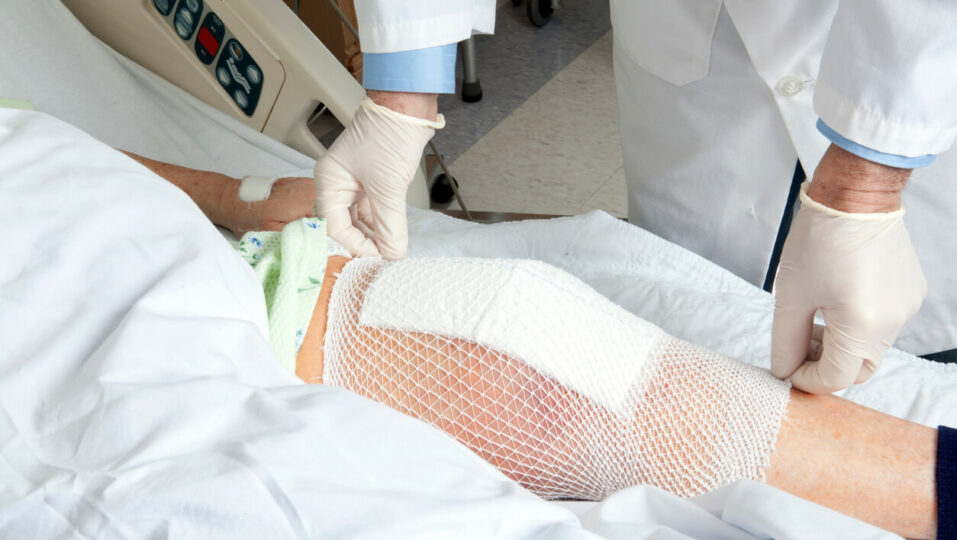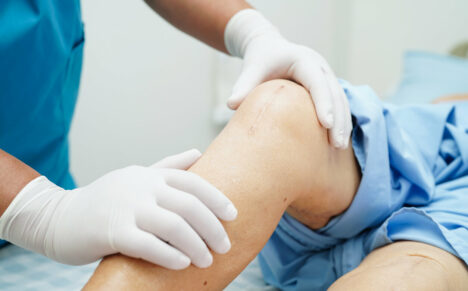Knee replacement surgery need not be a finish line for athletes – it can be a fresh starting block. Athletes and fitness enthusiasts who have undergone a knee replacement often find themselves facing questions like “can I return to the sport I love?” and “will running wear out my knee replacement?”
The answers to such questions is not just in the surgery itself, but in other factors, such as pre-operative preparation, bone health, rehabilitation, and motivation. Here, we will explore the avenues, considerations, and limitations for individuals looking to return to activities like running, hiking, or biking following a knee replacement.
Understanding Knee Replacement Surgery
Knee replacement surgery, or total knee arthroplasty, is a procedure that involves replacing a damaged or worn-out knee with an artificial joint. It’s often a solution for those suffering from severe arthritis or a significant knee injury. The success of the surgery is determined by several factors, including the skill of the surgeon, the quality of the prosthetic knee, and the patient’s health and commitment to a diligent recovery process.
Recovery from a knee replacement is different for everyone, and it takes time and patience. Initially, there is a considerable focus on healing and physical therapy to regain strength and mobility. The goal is to achieve a range of motion near that of a naturally functioning knee, enabling the patient to resume daily activities with the potential to get back to recreational sports and low-impact activities.
How Successful Are Knee Replacements?
Thanks to advancements in technology and surgical techniques, such as the use of robotic assistance, it allows for greater precision and more successful outcomes than in the past, with 80-90% of knee replacements lasting on average 15 to 20 years, and in some cases even longer.
As successful as this type of surgery is, it is not surprising that there can be limitations associated with knee replacement surgery. Although most patients can return to an active lifestyle and enjoy many of their previously enjoyed activities, certain activities are not advisable after a knee replacement. This can include high impact and contact sports which could cause injury or put greater stress on a knee replacement and lead to complications, such as earlier wearing out of the prosthesis or loosening of the bond attaching the implant to the bones.
However, there has been various research studies conducted on hip and knee replacements, showing that the degree of wear and tear often depends not only on the amount of physical activity carried out by an individual but also on the mechanical loading of the joint, which may vary depending on the type of activity, the person’s body weight, and their technique. Factors such as poor technique or taking part in high-impact activities were more likely to increase the level of wear and tear to a new joint and the risk of damaging it, making the need for revision surgery in the future more probable.
Physical Activities After Knee Replacement
Hiking
Hiking can be quite rewarding after knee replacement. The uneven terrain and natural inclines provide a good challenge for the muscles supporting your knee. However, it requires building up leg strength and stability to navigate safely. Using trekking poles and choosing moderate trails can help you enjoy the great outdoors without overtaxing your new joint.
Biking
Biking is often one of the recommended sports after knee replacement because it’s low-impact, yet effective for enhancing joint flexibility and strength. Stationary cycling can begin quite early in the recovery phase, and as progress is made, road cycling can be integrated into your regimen. Just remember to adjust your seat height to minimize the strain on the knee.
Running
High-impact activities such as running can put strain on your new joint, but low-impact movement with tennis and pickle ball are definitely possible after knee replacement surgery. It’s essential to follow the guidance of your surgeon and to start slowly. Typically long distance running is not recommended, as this can cause premature wear and tear to a knee replacement. Carefully listening to your body’s signals and building up gradually can help prevent damage and promote longevity in the new joint.
Considerations and Precautions
Before jumping back into any sports, it’s critical to consult your orthopedic surgeon and physical therapist to tailor a safe return to activity. They will provide a timeline that is compatible with your individual recovery milestones and work with you to improve your balance, strength, and coordination. They can monitor your progress and provide ongoing assessment to ensure your readiness to partake in specific activities.
It is essential not to rush the process. Overexertion can lead to injury, setbacks in recovery, or even damage to your new knee. Warm-up exercises before and cooldown stretches after any sports activity are good practices to incorporate. Moreover, pay attention to swelling and pain, use the appropriate gear when engaging in sports, and if you have any concerns, don’t delay, check in with your healthcare team to monitor your knee’s health.
Knee replacement does not have to signify the end of your athletic pursuits. With careful planning, a gradual approach, and adherence to professional advice, you can keep moving forward, one step, one pedal, or one trail at a time.
Knee Replacement Surgery in Raleigh, Durham and Apex, NC
To find out if you are a candidate for a knee replacement or to explore other treatment options for knee pain, visit board-certified and fellowship trained orthopedic surgeon Dr. Brett J. Gilbert for expert care.
Dr Gilbert provides a wide range of nonsurgical and surgical treatment options and specializes in knee and hip arthritis and minimally invasive, muscle-sparing joint replacement surgery. He can assess your condition and provide you with the guidance and expertise you need to make an informed decision about your treatment.
To find out more about the treatments offered by Dr Gilbert, call our office at (919) 788-8797. You can also request an appointment with Dr. Gilbert using our appointment request form, or you can self-schedule your appointment here. Don’t delay – work with us, and get back to doing the activities you enjoy as quickly as possible.




